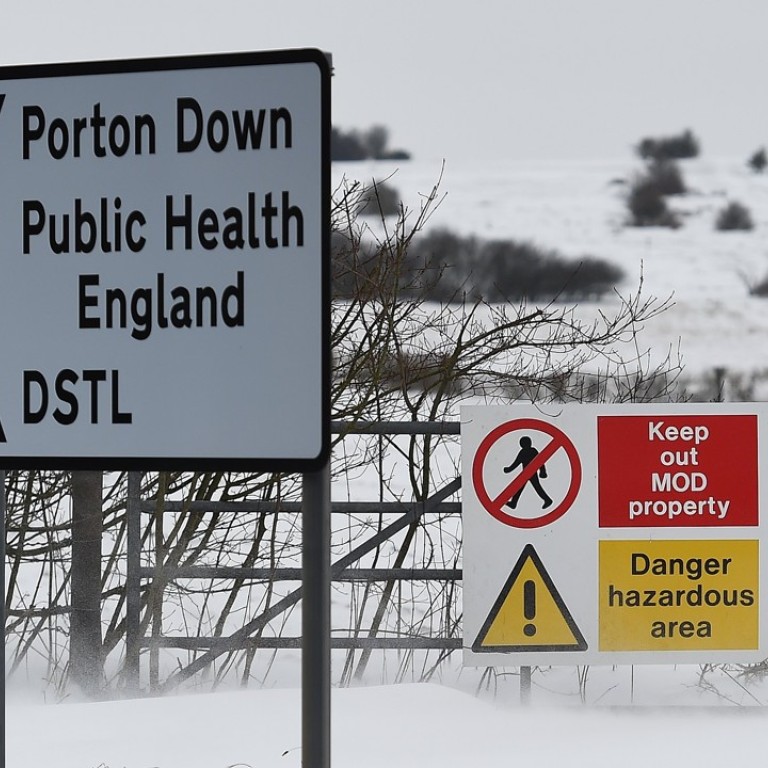
Russia hits back in spy poisoning row as experts called in
British officials step up claims Russia poisoned a former double agent in the UK, while Moscow is still waiting for Downing Street to show any proof
Russia hit back at Britain in the spy poisoning row on Monday, demanding proof that Moscow was involved in the nerve agent attack, as international weapons experts were called in to take a sample of the chemical for testing.
The poisoning of former double agent Sergei Skripal plunged relations between London and Moscow into crisis, soon before the re-election of Russian President Vladimir Putin.
But as the European Union offered “unqualified solidarity” with Britain, the Kremlin insisted that Britain prove Russia was involved in the March 4 attack or apologise.
“Sooner or later these unsubstantiated allegations will have to be answered for: either backed up with the appropriate evidence or apologised for,” said Putin’s spokesman Dmitry Peskov.
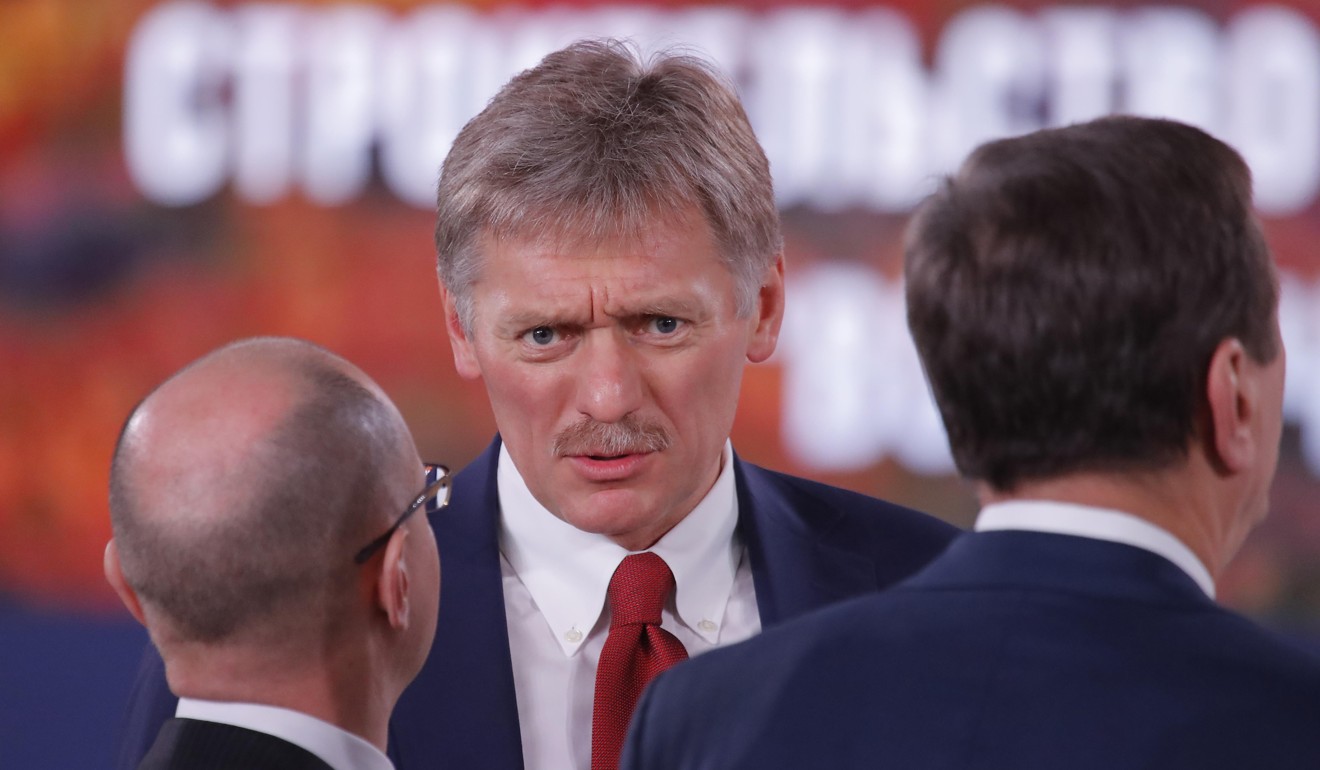
Putin on Sunday rejected as “complete drivel, rubbish, nonsense” the allegations by London and its allies that Russia was behind the attack on Sergei Skripal and his daughter Yulia in the English city of Salisbury.
On Monday, British Prime Minister Theresa May reiterated her belief that Russia was responsible, but again, did not provide any evidence.
“They have the capability. This nerve agent was one from a group of Novichoks that were developed by the Soviets,” she said during a visit to Birmingham. “Russia has the capability and I believe the motive and intent and this is part of a pattern of behaviour we see from Russia across Europe.”
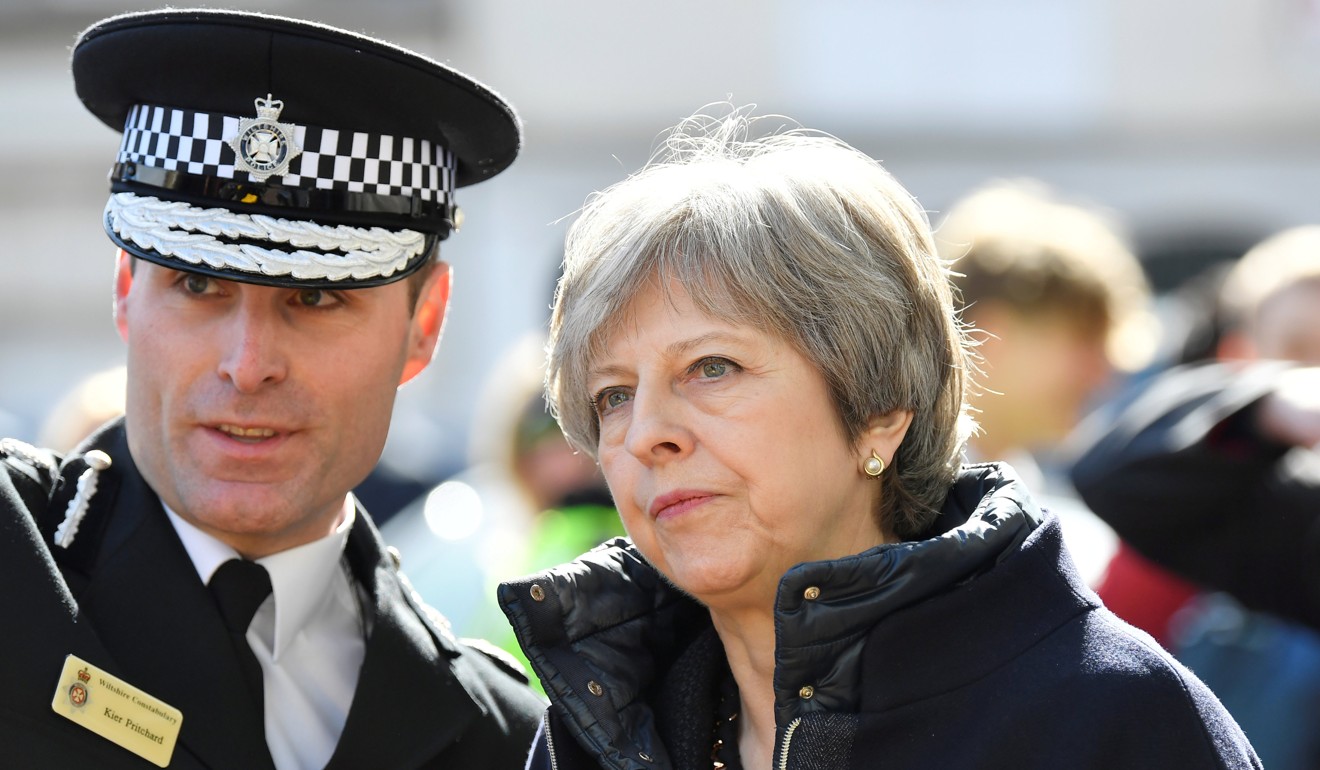
The EU said it fully backed Britain.
“The European Union expresses its unqualified solidarity with the UK and its support, including for the UK’s efforts to bring those responsible for this crime to justice,” EU foreign ministers said in a joint statement.
Skripal, a former Russian officer who sold secrets to Britain and moved there in a 2010 spy swap, remains in critical condition along with his daughter after they were found unconscious on a park bench.
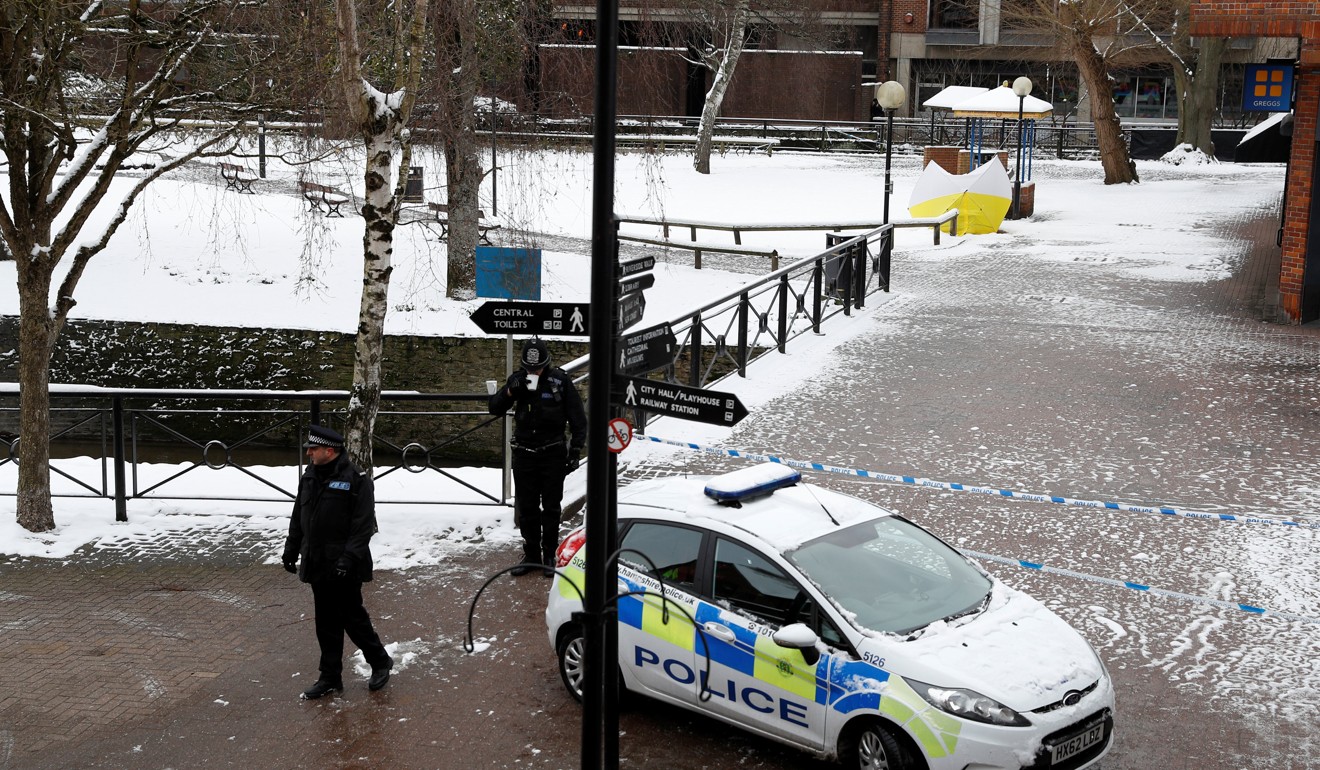
Investigators from the international Organisation for the Prohibition of Chemical Weapons (OPCW) were to visit Britain on Monday to collect samples of the nerve agent used.
They will meet officials from the Ministry of Defence’s biological warfare laboratory at Porton Down, coincidentally located near Salisbury, where the chemical was said to be identified as the Soviet-designed Novichok.
They will also meet police before sending samples to international laboratories for testing, with results expected to take at least two weeks, according to British officials.
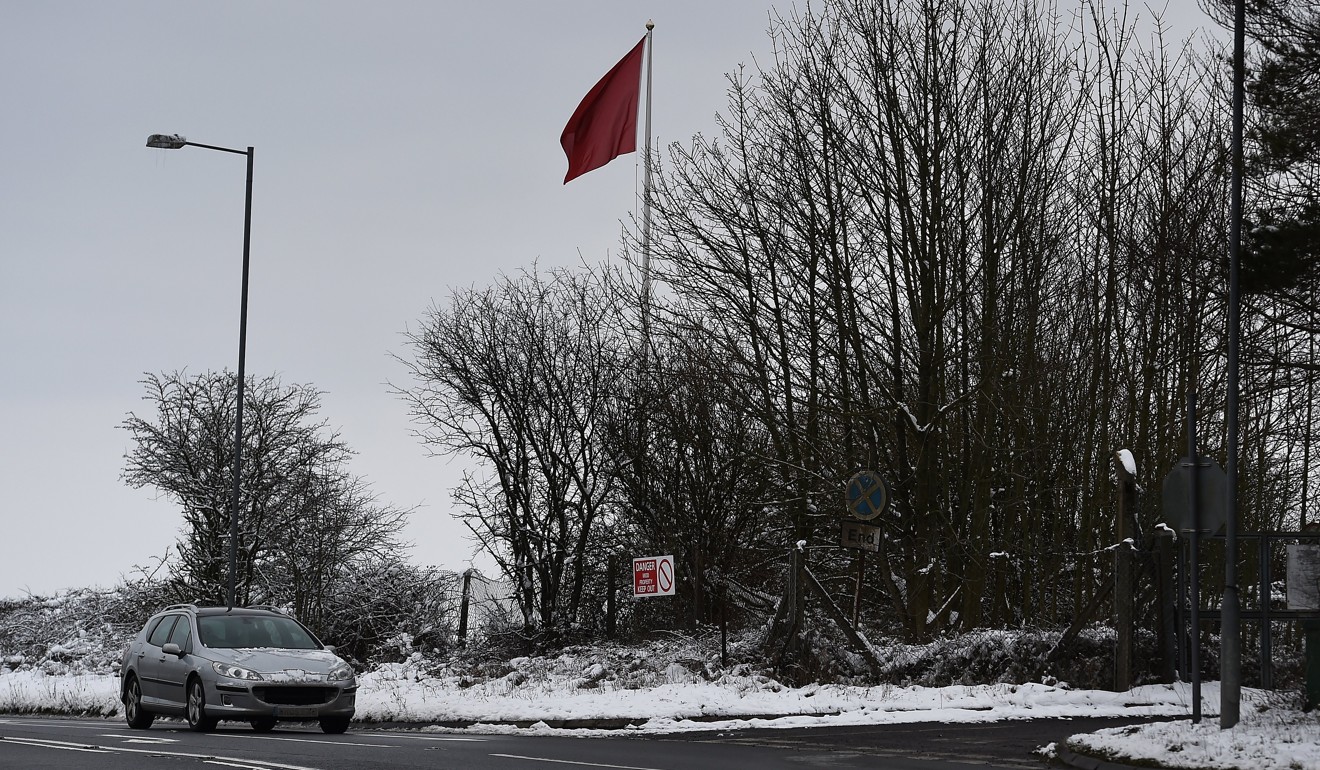
Britain last week announced the expulsion of 23 Russian diplomats, prompting a tit-for-tat response from Moscow. Britain also announced a boycott by members of the royal family and ministers of this summer’s World Cup football tournament in Russia.
In a joint statement last week, the leaders of the United States, Germany and France backed Britain’s analysis of what is claimed to be the first offensive use of a nerve agent on European soil since the second world war.
The three countries called for Russia to fully disclose details of its Novichok programme to the OPCW, a demand also backed by the EU foreign ministers on Monday.
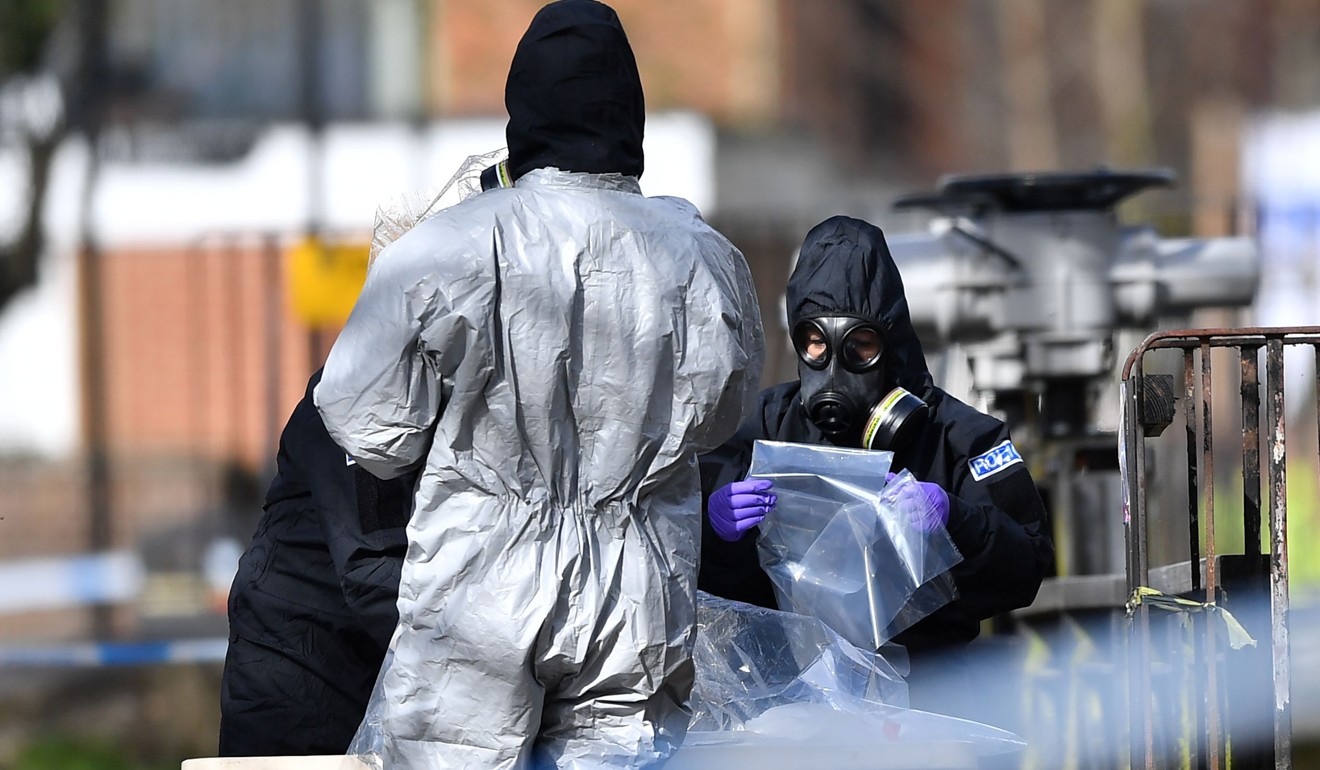
In his first direct comments on the incident, after winning a fourth term in Russia’s election on Sunday, Putin was defiant.
“We have destroyed all chemical weapons,” he said, pledging that Russia was ready to cooperate in the investigation.
Arriving in Brussels for the EU talks, British Foreign Secretary Boris Johnson insisted: “They’re not fooling anybody any more. The Russian denials grow increasingly absurd. This is a classic Russian strategy of trying to conceal the needle of truth in a haystack of lies and obfuscation.”
On Sunday, Johnson claimed to have evidence Russia was stockpiling nerve agents, but did not elaborate.
Moscow has accused London of casting the blame too hastily, and its ambassador to the EU suggested at the weekend that Britain itself may have been the source of the chemical.

.png?itok=arIb17P0)